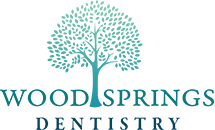Dental Cleanings: Answers to 5 Common Questions
As you look to the new year with its fresh starts and goal-making, remember to include your oral health and hygiene. After the holiday season's festivities have settled down and the new year has come, we know that many people will take time to reassess schedules and to-do lists. After all, a fresh planner is purchased to fill up with dates and to-dos!
Understanding the Importance of Dental Cleanings
The new year is a great time to think through areas to improve your oral health and to schedule your next dental cleaning appointment. Of course, the basics of oral hygiene include brushing teeth. However, proper oral hygiene requires more than just cleaning your teeth twice daily. You must floss them at least once daily and visit the dentist twice yearly.
During these visits, the dentist conducts a dental exam and the hygienist performs a thorough cleaning. These routine cleanings are an essential part of maintaining a healthy smile and should be scheduled every 6 months, unless otherwise instructed by your dentist. Regular dental exams and cleanings allow the dentist to detect early signs of serious dental conditions and protect against costly dental procedures that may arise if left untreated or undetected. Professional cleanings remove tartar, plaque and even staining that accumulates on the teeth and can’t be removed by at-home hygiene habits.
If you are in between these visits, let’s take a minute to “brush up” on some answers to frequently asked questions about exams and cleanings.
Five Common Questions About Dental Cleanings and Exams
Why are Dental Cleanings and Exams Important?
Dental exams and cleanings are important for protecting oral health. Oral health includes teeth, gums, and all the muscles and bones that allow you to smile, speak and chew. During your biannual cleaning and exam, the dentist and hygienist will look for common oral health problems such as tooth decay, gum disease, and oral cancer.
Professional dental cleanings are also important because dental professionals can remove plaque and tartar buildup that regular brushing and flossing cannot reach. Keeping your teeth clean from this buildup is key to preventing tooth decay and gum disease.
What Should I Do to Prepare for a Cleaning?
Here are a few things you can do to prepare for your next dental appointment:
Brush and floss your teeth daily between appointments - Make sure to maintain your normal oral hygiene routine before your appointment.
Brush before leaving home - Remove all food and debris from your mouth to be ready for the appointment.
Communicate concerns - Be prepared to share any concerns you have about oral discomfort or sensitivity with the dentist. If you are feeling anxious about the appointment, share any other concerns. If needed, Dr. Tejada can help you discuss options for sedation dentistry.
Compile medical information - Please remember to inform your dental team if you are taking medication, if you have experienced any significant changes in your health since your last visit, or if you have any relevant medical information or allergies to share.
How Often Should Teeth Be Professionally Cleaned?
At Woodsprings Dentistry, we recommend you schedule an oral exam and cleaning every six months to prevent plaque and tartar buildup. Always discuss your individual needs with your dentists. The dentist may recommend more frequently scheduled cleanings if any of the following factors are present:
History of gum disease
High cavity risk
Poor oral hygiene habits
Smoking
Diabetes
Are Dental Cleanings Painful?
No. Rest assured, if you are nervous about the dental cleaning being a painful experience, you should not feel pain. For some patients, certain factors may be present that could cause the cleaning to be uncomfortable.
Poor Oral Health—If you are slagging behind on your oral hygiene habits, you may experience more sensitivity if you have gum inflammation, tooth decay or other signs of oral disease.
Prolonged Time Between Cleanings - If it has been a while (over six months) since your last cleaning, you may feel discomfort from irritated gums as the hygienist cleanses the plaque and tartar buildup.
How to Make Your Cleaning More Comfortable:
Take an OTC pain reliever - To help alleviate pain and discomfort from the cleaning, take 600-800 mg of Advil or a similar painkiller about an hour before your cleaning and again six hours after your appointment. As always, please consult your doctor if you have any questions about taking over-the-counter pain relievers.
Talk to Your Hygienist - If you have experienced discomfort or sensitivity during cleaning in the past, let your hygienist know. The hygienist can offer topical anesthetics, prescription rinses or laser dentistry to make the cleaning more comfortable.
Improve Your Oral Health Habits - As mentioned above, maintaining regular daily hygiene habits is important for developing a healthy mouth making your professional cleanings more comfortable.
What is the difference between a regular cleaning and a deep cleaning?
The main difference between regular dental cleaning and deep cleaning is the level of thoroughness. A regular dental cleaning removes surface tartar to maintain tooth cleanliness and prevent cavities and gum disease.
A deep cleaning is a more in-depth procedure used to remove plaque and tartar from the roots of the teeth below the gum line. This procedure, an important part of periodontal treatment, may require multiple visits. The dentist may recommend a deep cleaning, also known as scaling and root planing, when a patient has moderate to severe gum disease.
If you are due - or overdue - for a professional teeth cleaning and exam, our team at WoodSprings Dentistry can help. Don’t wait! Schedule an appointment at our dental office today.

